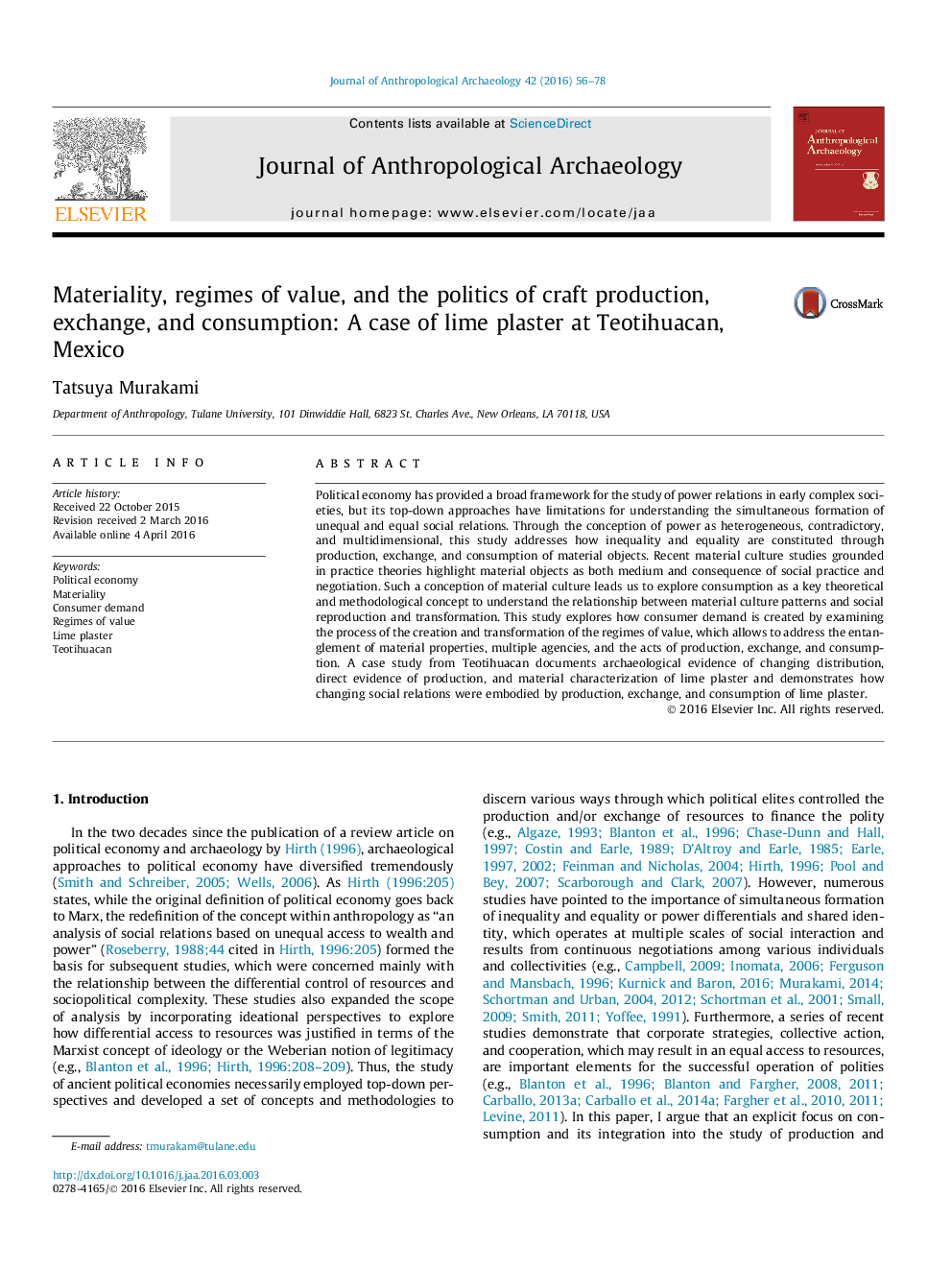| Article ID | Journal | Published Year | Pages | File Type |
|---|---|---|---|---|
| 1034859 | Journal of Anthropological Archaeology | 2016 | 23 Pages |
•Simultaneous formation of inequality and equality through economic behaviors.•A case study of lime plaster at Teotihuacan, Mexico.•Consumption as a key theoretical and methodological concept.•The agency of consumers and the regimes of value of material objects.•Entanglement of material properties, multiple agencies, and the acts of production, exchange, and consumption.
Political economy has provided a broad framework for the study of power relations in early complex societies, but its top-down approaches have limitations for understanding the simultaneous formation of unequal and equal social relations. Through the conception of power as heterogeneous, contradictory, and multidimensional, this study addresses how inequality and equality are constituted through production, exchange, and consumption of material objects. Recent material culture studies grounded in practice theories highlight material objects as both medium and consequence of social practice and negotiation. Such a conception of material culture leads us to explore consumption as a key theoretical and methodological concept to understand the relationship between material culture patterns and social reproduction and transformation. This study explores how consumer demand is created by examining the process of the creation and transformation of the regimes of value, which allows to address the entanglement of material properties, multiple agencies, and the acts of production, exchange, and consumption. A case study from Teotihuacan documents archaeological evidence of changing distribution, direct evidence of production, and material characterization of lime plaster and demonstrates how changing social relations were embodied by production, exchange, and consumption of lime plaster.
